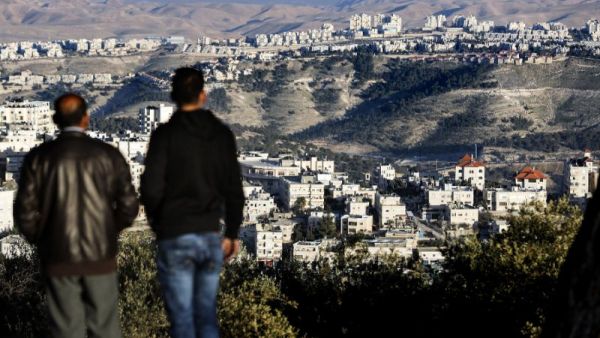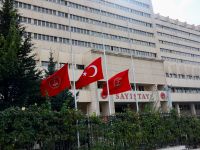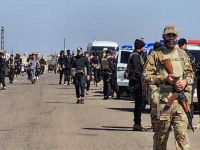- It has been 50 years since the U.N. passed a resolution urging Israel to leave the territories seized during the Six Day War
- But today, the occupation continues and settlement expansion is now more pervaisive than in previous years
- The news follows a string of evictions of Palestinian families to make way for illegal settlements in the West Bank
- In spite of this, the U.N. has yet to enact sanctions against the Israeli state
On Nov. 22, 1967, the U.N. Security Council called for Israel to withdraw from the territories seized during the Six Day War but 50 years on the occupation in Palestine is more pervasive than ever before.
Last week Palestinian farmers near the village of Shofeh in the West Bank were reportedly told that their land would be seized to expand the nearby settlement of Avnei Hefetz.
The Palestinian Authority’s Wafa News Agency said that Israeli officials play to take away the farmers’ source of income to build recreational facilities for the settlement.
While the farmers may appeal the decision, the move is just the latest by an increasingly bold Israeli government committed to copper-fastening the occupation using almost 200 settlements, deemed illegal by international law.
Earlier this month Israeli authorities handed evacuation notices to around 200 Palestinians from homes and agricultural lands in the Ein al-Hilweh and Umm al-Jamal villages in the northern Jordan Valley to make way for settlement construction in the area.
Up to 600,000 Israelis have moved into Israeli settlements in occupied Palestinian territory since 1967.
Recent months have shown an upward spike in the trend of settlement construction in Occupied Palestine.
The latest data from the Israeli Peace Now movement shows that plans to build 6,500 settlement units in the West Bank have been given the green light this year, compared to 2,629 settlement units in 2016 and 1,982 settlement units in 2015.
Meanwhile, it seems that the problem is only going to get worse for the Palestinian population of the West Bank after Israeli Attorney General Avichai Mendelblit now said that Palestinian land could be expropriated for public purposes in settlements earlier this month.
Although the AG’s statement is merely a legal opinion, it follows a decision by Supreme Court Justice Joubran which said that Palestinian land could be used to build a road which could pave the way for the legalization of the Harsha outpost, near Ramallah.
Speaking earlier this year Supreme Court Justice Salim Joubran said: “Israelis are included among the civilian population of the area and therefore the military commander’s duty also extends to them.”
Meanwhile, the Israeli state also stoked controversy by adding a so-called “Settler Award” to this year’s Israeli Independence Day celebrations.
Pro-settlement activists also held a conference earlier this month in which Israeli minister Ze'ev Elkin who encouraged planning for up to 1,000 new settler homes in the area.
“Advance plans with all your might, as if it is possible today as if you could create a zoning plan for 1,000 homes and execute it. If everyone does this, I believe that the numbers will become the reality of our lives,” he told the audience.
All of this happening as the U.N. and European countries condemn settlement expansion just as they condemned the occupation 50 years ago.
Yet, the U.N. has not enacted any sanctions against Israel despite the Zionist State’s refusal to halt the occupation or settlement expansion in the area.
For many observers, the U.N. and western powers may appear toothless and unwilling or unable to stop an increasingly fearless Israel from stealing Palestinian land.








